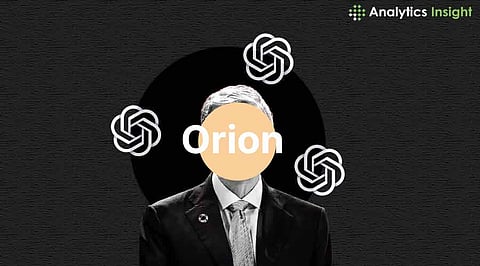

What if ChatGPT could take neural networks and reasoning to unprecedented levels? As anticipation builds for OpenAI’s upcoming large language model, codenamed “Orion” or ChatGPT 5, this question becomes increasingly relevant. OpenAI is reportedly developing its most ambitious AI model yet, aiming to push the boundaries of AI’s capabilities. Expected to debut in 2025, Orion is designed to outpace its predecessors in speed, understanding, and reasoning.
The race to build advanced generative AI models has been fierce, with OpenAI leading the charge and competitors like Google and Meta quickly following. However, artificial general intelligence (AGI) — the point where AI matches human cognitive capabilities — remains elusive. Early reports suggest Orion could represent a major leap toward AGI.
Initial predictions suggested a December 2024 launch for Orion, but a recent statement from OpenAI indicated that the timeline might extend to early 2025. Recent departures of high-profile executives, including former CTO Mira Murati, may have contributed to these delays.
Orion may first be integrated with OpenAI’s strategic partners, such as Microsoft, instead of launching directly to the public. Previous releases have taken this route, integrating OpenAI’s models into Microsoft’s Copilot and other corporate tools. A limited initial release would allow OpenAI to test Orion’s performance in a controlled environment before a full public launch.
When ready, Orion could support a wide range of applications across sectors such as financial services, healthcare, and customer service. This selective release strategy would provide OpenAI with critical feedback, refining Orion's capabilities before a broader rollout.
If reports are accurate, Orion will offer several key improvements over current models, like GPT-4 and GPT-4o. These advancements are expected to focus on three primary areas:
Enhanced Reasoning Skills: Orion is anticipated to possess richer reasoning capabilities, potentially making it one of the most effective LLMs available. Mira Murati, OpenAI's former CTO, described GPT-4 as reaching high-school-level intelligence, with future models likely achieving PhD-level reasoning for complex problem-solving and precise recommendations.
Larger Context Window: Orion is expected to process larger data inputs, making it capable of handling lengthy texts and conversations with high accuracy. This larger context window would enhance performance in data-intensive fields like research, law, and healthcare.
Broader Knowledge Base: A more extensive knowledge base would give Orion a deeper understanding of specialized topics and recent developments. This could be particularly valuable in fast-evolving fields like technology, where current information is critical. A larger knowledge base could also reduce model biases, making Orion a more reliable resource.
Orion is expected to expand on OpenAI’s multimodal approach, allowing it to process text, audio, and image inputs and produce outputs in any of these formats. This flexibility would extend Orion's potential applications in areas like customer support, content creation, and virtual assistants, which benefit from the ability to handle multiple types of input.
Following in the footsteps of models like Meta’s Llama 3.2 and Google’s Gemini, Orion may be available in multiple model sizes tailored to various use cases. This modularity would allow OpenAI to address the needs of both businesses seeking compact models and industries requiring powerful, comprehensive systems.
Orion is reported to have over 1.5 trillion parameters, making it one of the largest language models to date. GPT-4’s architecture already exhibits impressive processing power and accuracy, but Orion’s expanded parameter count would push performance even further. These additional parameters would likely improve Orion’s reasoning, context handling, and multimodal capabilities, making it better suited for complex tasks.
While Orion may bring AI closer to human-level intelligence, experts agree that AGI remains years away. Orion, however, is expected to excel in specific, intricate tasks without reaching full human equivalence. OpenAI has emphasized its commitment to ethical AI development, given the significant societal impact of these systems.
New safety protocols for Orion include watermarking AI-generated content and prohibiting the use of personal data in training. OpenAI aims to minimize bias and reduce the risk of malicious behaviour, addressing concerns raised by past instances of AI misuse. These measures highlight OpenAI's commitment to building responsible AI models that transform industries while upholding ethical standards.
Orion represents a significant milestone in OpenAI’s pursuit of advanced AI. With its potential to redefine generative AI, Orion merges technical excellence with responsible innovation. Although challenges remain, Orion promises to open a new chapter in AI development, positioning OpenAI at the forefront of the evolving artificial intelligence landscape.
